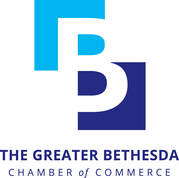 New 2023 SBA Loan Rules Make Getting A Small Business Loan Easier New 2023 SBA Loan Rules Make Getting A Small Business Loan Easier By Neil Hare SBA loan rule changes may offer relief to small businesses still struggling after the pandemic. GETTY On May 11, 2023, crucial changes to the Small Business Administration’s (SBA) 7(a) and 504 loan programs went into effect, aimed at streamlining the loan application process, expanding the number and types of lenders, and relaxing regulations in order to reach more small businesses, especially those in underserved communities. While these changes may offer much-needed relief to small businesses still struggling in the wake of the pandemic, there is backlash from many who believe the rules signify the end of the SBA’s prudent lending practices and will increase defaults on the taxpayers’ dime. The SBA has long served as a lender of last resort for small businesses that were unable to access loans through private lenders. The 7(a) loan is the SBA’s most popular loan program and has a maximum borrowing limit of $5 million. Loans can be used for real estate, equipment, acquisitions, and other working capital. The 504 loan program is primarily used for real estate or land loans, with fixed interest rates and maturity up to 25 years and a maximum borrowing limit of $5.5 million. In the 2022 fiscal year,$25.7 billion in 7(a) loans and $9.2 billion in 504 loans were issued. New SBA loan measures come with both strong support and opposition Those in favor of the new rules emphasize the importance of access to capital in running a successful small business in the current economic environment. Traditional bank loans often come with revenue demands many businesses can’t meet, and the cost of that capital has increased dramatically with recent ongoing Fed rate hikes. In addition, many small businesses find the SBA loan application process prohibitively complicated and time-consuming; women, minority, and veteran- owned small businesses have also historically struggled with accessing capital, an issue the new rules promise to address. In a January 6, 2023 comment letter to the SBA, Penny Lee, CEO of the Financial Technology Association—the trade association representing fintechs—pledged support for the new rules: “Fintechs play an important role in filling the credit access gap, especially when no other options are available and we encourage the SBA to proceed with this initiative. In particular, we believe that by leveraging technology and nontraditional data, fintechs can better serve small business borrowers in the 7(a) program while maintaining the high credit and compliance standards set by established participants" Ami Kassar, CEO and founder of MultiFunding, a Philadelphia-based company that helps small businesses navigate the SBA loan process, worries that the new rules will lead to an uptick in fraud and widespread loan defaults over the next three years, all backstopped by the U.S. taxpayer. Kassar’s concern is that fintechs are not beholden to existing banking regulations that traditional lenders will need to follow regardless of these new rule changes. “These new rules have been carefully lobbied by the fintechs that want to speed up the lending process and get money out the door faster. There will be increased defaults due to relaxed risk analysis and in three years everyone will wonder why," he says. "The SBA has done no analysis on potential default rates due to these changes prior to issuing these rules.” The new SBA loan requirements and rules outlined The new rules affect multiple areas of the SBA lending process, starting with the expansion of approved 7(a) and 504 lenders. Previously, the SBA had limited the number of approved SBA lenders to a small handful. Of course, this cap had been lifted dramatically with the PPP program. Under the new rules, there will no longer be a cap on the number of approved lenders, and fintech companies will be allowed to apply for SBA approval. In theory, this move by the SBA will increase the number of loans issued and decrease the timeline of loan applications. The SBA will also streamline the evaluation of borrowers by eliminating certain criteria. Prior to the new rules, nine factors were considered when evaluating potential borrowers:
The criteria has been slashed to three distinct factors: the applicant’s credit report, cash flow, and equity or collateral. The removal of “character and reputation” as a factor for consideration aims to remove the weight of individual bias in the evaluation process. The requirement for hazard insurance on collateral for 7(a) and 504 loans under $500,000 also is eliminated. This removes a barrier to obtaining small loans and reduces the timeline to obtain a loan. The potential uses for 7(a) loans are expanded to include partial transfers in ownership. Previously, only full transfers in ownership were eligible for 7(a) loans. Finally, the “credit elsewhere” test whereby applicants must prove they couldn’t obtain loans at other institutions is being reduced to a “check the box” without corresponding paperwork—another area of concern for opponents of these rule changes. SBA loan program improvements will expand access to funding Overall, these new rules are a much-needed boost for small businesses that are still recovering from Covid shutdowns and corresponding supply chain issues and inflation. Many businesses are still struggling to stay afloat and generate enough profit for owners to save for retirement, pay the mortgage, and take a summer vacation. While examining risk is and always should be an important part of any lending process, expanding opportunities, especially in underserved and underbanked communities, can only help the uncertain economic future we all face. About the Author Neil Hare is an attorney and President of GVC Strategies, where he specializes in small business policy, advocacy, and communications campaigns; follow him on Twitter @nehare and on LinkedIn. See more of Neil’s articles and full bio on AllBusiness.com.
1 Comment
7/31/2023 01:01:08 am
This blog is a helpful resource for small businesses looking to navigate the new SBA loan rules in 2023. It's great to see information that simplifies the process of obtaining loans and supports entrepreneurs. Kudos to the author for providing valuable guidance to business owners!
Reply
Your comment will be posted after it is approved.
Leave a Reply. |
Welcome!Our Chamber Blog is designed to provide you information about The Chamber, our members, advocacy and legislative updates, and important business tools. Archives
June 2024
Categories
All
|
|

 RSS Feed
RSS Feed

